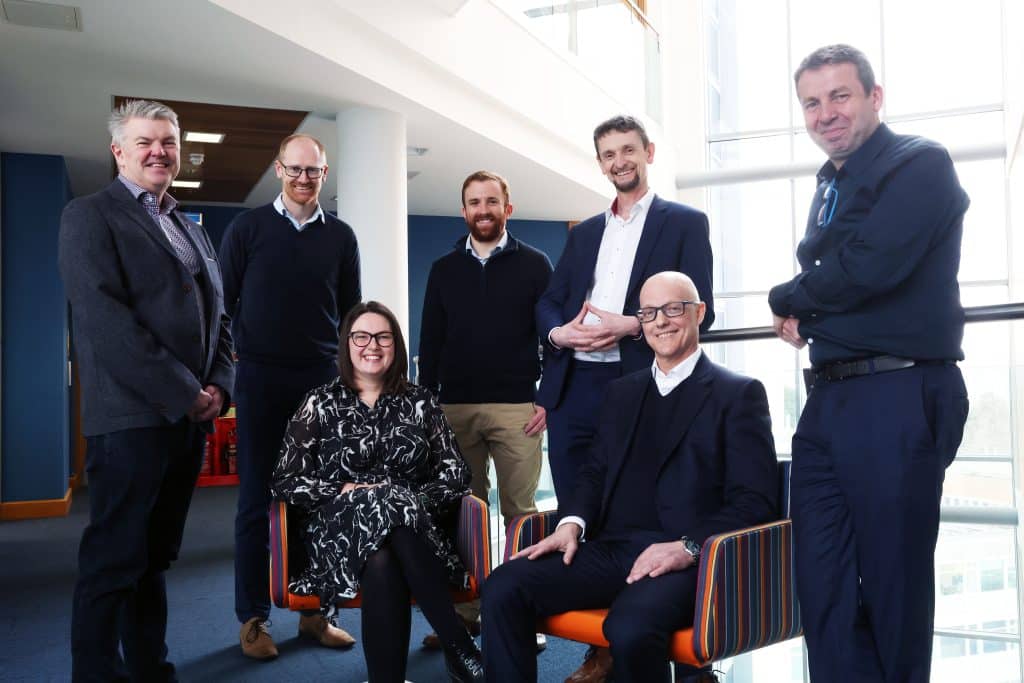MARCH 9, 2023 | COMPANY | NEWS
Nonacus is delighted to announce its investment in CanSense: a Swansea-based start-up company focused on the early detection of bowel cancer through a simple blood test.
CanSense's test, which combines laser spectroscopy with artificial intelligence, is faster, less expensive and less invasive than a colonoscopy procedure and more acceptable for patients than a faecal blood detection kit.
It could help detect bowel cancer at an early stage when it is much easier to treat and the chance of survival is much higher.
Alongside Nonacus' investment, CanSense has also raised funds from Mercia and the Development Bank of Wales, with this investment enabling the company to further develop the product and carry out clinical trials to meet regulatory requirements and bring it to market.

Left to right: Andy Morris (DBW), Chris Sale (Nonacus C.E.O), Cerys Jenkins (CanSense Chief Data Scientist), Rafael Joseph (Mercia), Dean Harris (CanSense Chief Medical Officer), Adam Bryant (CanSense C.E.O), Peter Dunstan (CanSense Chief Technology Officer).
CanSense's blood test is based on research by Professor Peter Dunstan, Professor Dean Harris and Dr Cerys Jenkins at Swansea University which was part funded by Cancer Research Wales. They joined forces with Dr Adam Bryant, an entrepreneur and former investment banker with a PhD in physics, to set up CanSense in 2019.
Adam Bryant, the company's chief executive, said: "Symptoms of bowel cancer are non-specific so it is hard for GPs to detect. Many patients are sent for a colonoscopy but the majority of these tests are negative, creating an inefficient pathway which is now at breaking point. Our test could help GPs to make the right triage decisions, freeing up diagnostic services and ensuring high-priority patients are seen as quickly as possible. By detecting bowel cancer at the earliest possible stage, it could also significantly improve outcomes for patients."
Speaking on the investment, Chris Sale, chief executive officer at Nonacus, said: "CanSense's unique and patented spectroscopy technology has shown real promise in early-stage clinical trial results as an early cancer detection screening or triage test. What's more the technology can enable low cost and high throughput testing that would be needed in the screening and triage setting. In the future the CanSense technology could be applied as a standalone test or combined as a multi-omics test with our own highly sensitive DNA based testing as required".